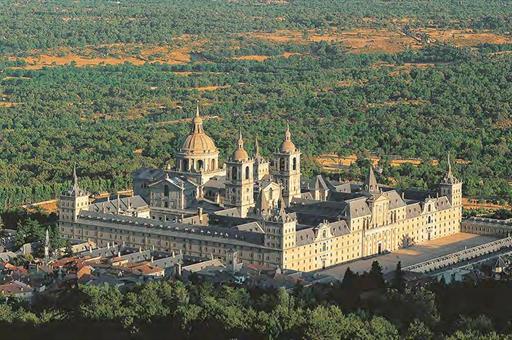The Rich Tapestry of Spanish History
Spain, a land steeped in history and cultural diversity, boasts a captivating past that stretches back millennia. From the early settlements of Iberians and Celts to the rise and fall of powerful empires, the story of Spain is one of resilience, reinvention, and enduring legacy. Let's embark on a chronological exploration of this remarkable nation, delving into the key periods and events that shaped its unique identity.
Ancient Foundations: Pre-Roman Spain (3500 BCE - 218 BCE)
Early Inhabitants:
The earliest known inhabitants of the Iberian Peninsula were the Iberians, arriving around 3500 BCE. They established settlements and developed distinct cultures across the region. Later, Celts migrated from Central Europe, blending with the existing population and introducing their own language and customs.
Iberian sculpture
Phoenician and Greek Influences:
Phoenician traders arrived in the 8th century BCE, establishing settlements like Cádiz and Ibiza. They introduced the alphabet, maritime technologies, and trade networks that influenced the development of Iberian societies. Later, Greek colonies sprang up along the eastern coast, further enriching the cultural landscape.
Phoenician city of Cádiz
Carthaginian Rule:
In the 3rd century BCE, the Carthaginians, a powerful North African civilization, gained control of much of southern Spain. They clashed with the Roman Republic, leading to the Second Punic War (218-201 BCE), which ultimately resulted in Roman dominance over the Iberian Peninsula.
Roman Era: Hispania and the Legacy of Empire (218 BCE - 476 CE)
Roman Conquest:
Following their victory over the Carthaginians, the Romans embarked on a gradual conquest of Hispania, culminating in complete control by the 1st century BCE. They incorporated the region into their vast empire, introducing Roman law, administration, and infrastructure.
Roman aqueduct in Segovia
Pax Romana and Cultural Assimilation:
During the Pax Romana (Roman Peace), Hispania enjoyed a period of relative stability and prosperity. Roman cities like Mérida and Tarragona flourished, and Latin became the dominant language. Roman culture and architecture left an enduring mark on the region.
Decline of the Roman Empire:
By the 5th century CE, the Roman Empire began to decline. Germanic tribes, including the Visigoths, migrated into Hispania, eventually establishing their own kingdom in the 5th century CE.
Medieval Mosaic: Visigoths, Muslims, and Reconquista (476 CE - 1492 CE)
Visigothic Kingdom:
The Visigoths ruled Hispania for centuries, adopting Christianity and developing their own legal code and institutions. However, internal conflicts and pressure from external forces eventually weakened their kingdom.
Visigothic crown
Islamic Conquest and Al-Andalus:
In 711 CE, Muslim forces from North Africa launched an invasion of Hispania, conquering most of the peninsula within a few years. They established a thriving civilization known as Al-Andalus, characterized by religious tolerance, scientific advancements, and artistic achievements.
Alhambra palace in Granada
Reconquista:
In the 8th century CE, Christian kingdoms in northern Spain began a centuries-long process of reconquering territory from Muslim control. This period, known as the Reconquista, was marked by religious conflict, cultural exchange, and the gradual consolidation of Christian power.
Fall of Granada and Unification:
By the late 15th century, only the Emirate of Granada remained under Muslim rule. In 1492, the Catholic Monarchs, Ferdinand and Isabella, conquered Granada, marking the end of Muslim rule in Spain and the culmination of the Reconquista.
Golden Age and Global Expansion: The Spanish Empire (1492 CE - 1814 CE)
Age of Exploration:
The late 15th and early 16th centuries saw a surge in Spanish exploration, fueled by advancements in navigation and a thirst for new lands and riches. Christopher Columbus's voyages to the Americas in 1492 opened the door to a vast new world for Spain.
Christopher Columbus
The Habsburgs and Empire Building:
Under the Habsburg dynasty (1516-1700), Spain emerged as a global power, acquiring vast territories in the Americas, Europe, and Asia. The influx of gold and silver from the Americas fueled a period of prosperity and cultural flourishing known as the Spanish Golden Age.
Spanish colonial empire at its peak
Cultural Riches and Artistic Legacy:
The Golden Age witnessed a blossoming of art, literature, and architecture. Renowned writers like Miguel de Cervantes and painters like El Greco and Diego Velázquez produced masterpieces that For more :
For more :
https://en.wikipedia.org/wiki/History_of_Spain
https://www.lamoncloa.gob.es/lang/en/espana/historyandculture/history/Paginas/index.aspx





































